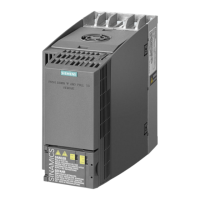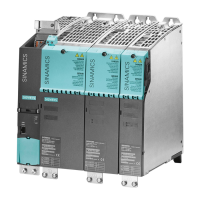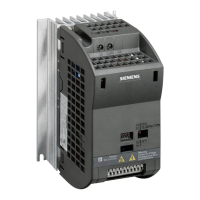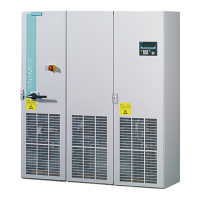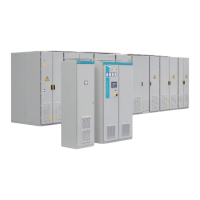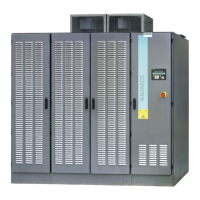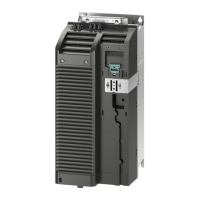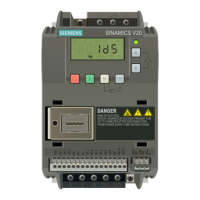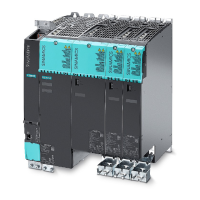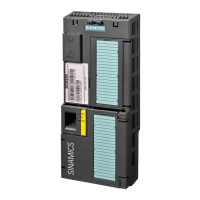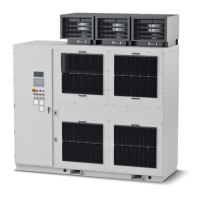I/O connection
● Create a low-impedance ground connection for additional cabinets, system components,
and distributed devices with the largest possible cross-section (at least 16 mm²).
● Ground unused lines at one end in the cabinet.
● Choose the greatest possible clearance between the power and signal cables (at least 20
cm). The greater the distance over which the cables are routed in parallel, the greater the
clearance must be. You must install additional shields if sufficient clearance cannot be
maintained.
● Avoid unnecessarily long cable loops.
● Surge suppressors, e.g. RC elements or varistors must be connected to the operating coils
for contactors and relays in the converter.
● In order to reduce noise/interference entering or exiting via the cable, filter auxiliary voltages
in the control cabinet.
6.3 Potential concept
A noise-free connection between the internal and external supply voltage can be achieved by
connecting the 0 V potentials to each other and grounding them. This also eliminates the need
for the control circuit insulation monitor required by DIN EN 60204-1.
,QWHUQDO
ORDGV
([WHUQDO
ORDGV
3
0
3
0
1
Figure 6-3 Potential concept
6.4 Electrical requirements
Table 6-1 Dimensioning cables
Object Length
Cable length (motor side) 50 m with one or two parallel ca‐
bles;
Cables must be shielded
200 m with output reactor (option
L08)
Capacitance per unit length max.
0.45 µF/km
Cable length (line side) 70 m
Electrical connection
6.3 Potential concept
SINAMICS SM150 6SL3845-7NN46-7AA0
112 Operating Instructions 04/2017

